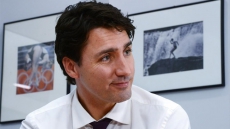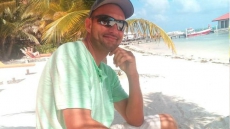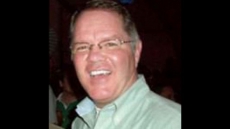OTTAWA — The federal government sought Wednesday to introduce more stability into Canada's immigration system by introducing a plan that sets out a gradual rise in admissions over the next three years.
By 2020, Canada will see an increase of 13 per cent in overall immigration numbers, with the vast majority coming under economic programs designed to address skills shortages and gaps in the labour market as the population ages and the birth rate declines.
At 340,000 people, the increase by 2020 represents the highest intake since before the First World War, though it stops short of the 450,000 target suggested by the government's economic advisory council in a report last year.
Immigration Minister Ahmed Hussen said the plan he unveiled Wednesday is the right mix for Canada, for now. The gradual increase over time was designed so the system could adjust, he said.
"Bringing a newcomer to Canada is half of the job; we have to make sure people are being given the tools they need to succeed once they get here," Hussen told a news conference in Toronto.

"We have to make sure we have the absorptive capacity, we have to make sure that our partners on the ground with the settlement and integration processes that they engage in every day have the tools necessary so they can plan ahead, so they can adjust to the numbers."
The switch to a longer-term planning approach marks a major pivot for the federal government, which has for decades relied on setting only annual targets. The last time there was a multi-year approach was in the 1980s and it was shelved after a recession.
Hussen's predecessor, John McCallum, had suggested last year the government was contemplating a switch and consultations on the idea have been ongoing ever since.
The Conference Board of Canada — among the groups advocating for a multi-year plan — welcomed the move.
"Canada's decision to increase immigration will help sustain long-term economic growth in light of its rapidly aging population and low birth rate," senior vice president Craig Alexander said in a statement.

"Introducing a multi-year levels plan will improve the ability of governments, employers, immigrant-serving organizations and other important stakeholders to successfully integrate newcomers into Canada’s economy and society."
The massive movement of refugees and migrants around the world had seen calls for the Liberals to not just increase economic immigration to Canada but also add more space for resettlement of refugees and displaced persons.
Canada welcomed nearly 60,000 people in the refugee and protected persons program in 2016, thanks to the landmark Syrian refugee effort.
But while slight increases are planned to that stream over the next three years, the final target is nowhere near as high, with a planned 48,700 people by 2020.
Conservative Immigration critic Michelle Rempel said Canada's immigration system as it stands is plagued with problems that if not addressed, will only be exacerbated by the increases overall.
She pointed to major backlogs at the Immigration and Refugee Board overwhelmed by an influx of asylum seekers at the border, delays in processing live-in caregiver applications for permanent residency and thousands of unprocessed private sponsorship applications for refugees.
"None of this is compassionate, safe or fair; all key elements needed to give the public faith in the integrity of our immigration system and maintain broad social license for it to operate," Rempel said in a statement.
Hussen said the increase levels would be matched with an increase in funding, but couldn't say by how much on Wednesday.





